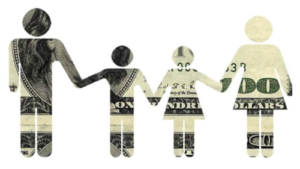How to Handle Tough Decisions

Everyone has to make decisions in life and many of those decisions can be very difficult to make. The same can be said for businesses. Decision makers in the business world face a lot of tough choices and some of these choices can actually make or break their companies. So how do they make tough decisions? How do CEOs and other top-level executives make those hard choices? There are many different philosophies that decision-makers use and there is no one-size-fits-all answer to making tough decisions. However, when I spoke with David Bradford about how he makes tough decisions he shared one idea with me that he feels makes a huge difference for any decision maker, and in turn, that person’s company.
Timing Does Matter
David, who is the current Chairman of the Board of VIEW – Virtual Immersive Educational Worlds aka FluentWorlds, has also spent time as an Executive, as a CEO and a as Chairman at several other companies, including Novell, Fusion-io and HireVue. When I asked him point blank how he makes tough decisions he told me his philosophy. He said: “It’s better to make a good decision today than an excellent one six months from now.” Dave went on to tell me that he has seen, especially with startup companies, the CEO be “so caught up in doing the ‘right’ thing, in terms of making the right strategic decision that it becomes disabling to the organization.”
Waiting for the Perfect Time Is Wrong
No one wants to make the wrong decision because one catastrophic choice could set a company back for years, or worst-case scenario become the cause of its complete downfall. It’s not uncommon for a decision maker to spend hours stressing over important choices in order to try to determine the best possible decision. However, by waiting too long to make a decision you could end up doing more harm than you would have done by making a good decision sooner, even if it wasn’t the best possible choice. Again, as David told me, making a good decision in the moment is better than waiting six months to make the perfect decision. He then hammered that point home by telling me, “You’ve got to make decisions now.”
Follow the Best Examples
David also said that he has seen CEOs that have great decision making skills and those are the ones that he loves to emulate. For example, he mentioned that he and Scott McNealy, the CEO and co-founder of Sun Microsystems have become good friends over the years. He said that one thing he loves about Scott is that “he is a decisive guy, no mistake about it.” So that is the kind of decision maker that David tries to follow. When it comes to making decisions, no one is perfect. People don’t always make the right choices, but as David explained to me it can be much worse to delay a decision too long and you can actually end up hurting your company more by waiting. Therefore, when you are faced with a difficult choice, be decisive.
Employee Ownership Update
Employee Ownership The following article appeared in the New York Times on May 21, 2006 and is one of the best articles about employee ownership that I have seen. It illustrates a few great examples of how employee ownership has helped companies achieve extraordinary success. These Workers Act Like Owners (Because They Are) By William…
Family Limited
This FLP Alert is directed at clients and their advisors who have already established Family Limited Partnership irs (“FLP’s”) and those clients who are considering a partnership as part of their estate plan. With all the attacks the IRS has made on FLP’s over the past few years, culminating at the Strangi III decision in…
The True Value of Your Company May Be Different From What You Think
The True Value of Your Company May Be Different From What You Think Approaches to Value Intangible Assets Posted: 3/31/11 I’ve received a lot of inquires asking how to value a company that has yet to generate any revenue, has not reached profitability, and yet, it has a substantial history of expenses. Most are start-up…
Does Your Business Need a Buy-Sell Agreement?
Does Your Business Need a Buy-Sell Agreement? What Is Buy-Sell Agreement? Buy-Sell Agreement, also known as a buyout agreement, give the company or other stockholders the option or obligation to purchase the interests of other owners under some specified circumstances called trigger events such as death, departure, or retirement, etc. There are two basic types…




